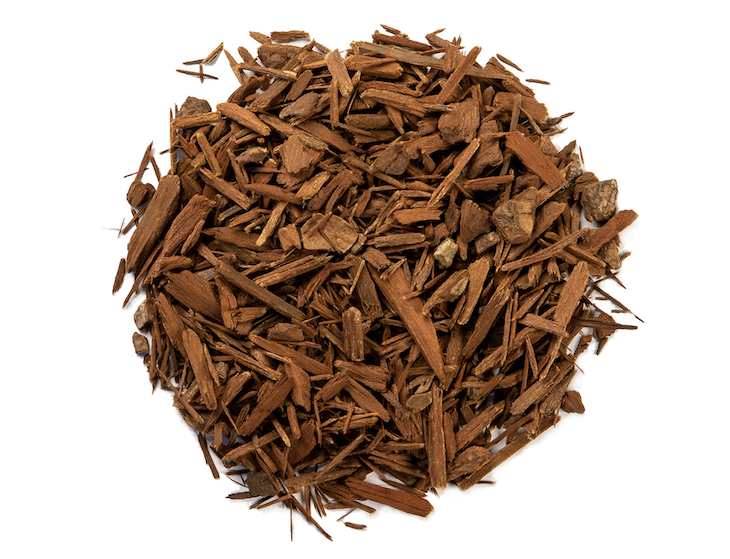
Yohimbe
Yohimbe is an evergreen tree native to central and western Africa. It has been traditionally used in West Africa as an aphrodisiac, and for athletic performance. It appears to be most effective when it's consumed while in a fasted state, and it should be taken with cautioun as it can have serious risks.
Usage
Sexual Health
May help with sexual dysfunction in men and women.
Erectile Dysfunction
May help with erectile dysfunction.
Weight Loss
Studies shows some mix results if the Yohimbe is helpful with weight loss.

Ancient Herbal Therapy
Preparations obtained from the bark of Yohimbe have been traditionally used in West Africa as general tonic, as a performance enhancer for athletes, and as an aphrodisiac.
Nowadays, despite the use of yohimbe bark and its preparations is specifically prohibited in foods or food supplements in several European countries
(e.g. United Kingdom, Ireland, Netherlands, Belgium, Denmark, Czech Republic) as well as in Canada, Australia, and New Zealand. These are nonetheless easily available via internet retail, also in combination with other substances (e.g. caffeine).
These products are promoted to improve sexual and athletic performance and for the enhancement of sexual satisfaction and also for weight loss.
How to add Yohimbe to your diet?
Tea
Tea has a is reddish in color and has a bitter taste.
As a Supplement
Available in capsules, and powders.
The plant Pausinystalia yohimbe grows in Tropical West Africa (Cameroon, Congo, Gabon, Equatorial Guinea, Nigeria).
The amount of yohimbine in dietary supplements may vary; some yohimbe products contain very little yohimbine.
It is illegal in the United States to market an over-the-counter product containing yohimbine as a treatment for erectile dysfunction without FDA approval.
Has been associated with heart attacks and seizures.
About
Yohimbe (Pausinystalia yohimbe) is an evergreen tree that is native to Central Africa. The wood and bark are used for firewood and construction. Bark, the most commercially important product, is used in extractions to make tinctures for traditional medicine and dietary supplements.
Over-exploitation due to its alleged weight-loss properties has led to concerns that C. johimbe is becoming an endangered species.
Composition
Yohimbine, the main active component of yohimbe extract, is an adrenoceptor antagonist that has been used in the treatment of erectile dysfunction. At high doses, its most common effects are increased blood pressure, slight anxiety, etc. It has been used as an aphrodisiac and hallucinogen and in herbal supplements. Body-builders have used it for its presumed lipolytic effects.
Research
It has been proven that yohimbe reduces food intake and stimulates lipid mobilization in subcutaneous adipose tissue. It has been proposed that local or oral administration of yohimbine might be a plausible strategy for lipid mobilization in subjects with lower-body obesity following low-calorie diets combined with exercise regimens.
Nevertheless, yohimbine is a commonly used pharmacological stressor that increases brain noradrenaline cell firing and releases at the same time as inducing stress- and anxiety-like symptoms in both humans and non-humans. Thus, yohimbine is not suitable as a safe metabolic booster since it provokes anxiety and stress.
Safety
Yohimbe extract is extremely understudied. According to a study of healthy volunteers, a single oral dose of 4 mg yohimbine/person did not show effects on platelet aggregation and cardiovascular parameters as well as plasma catecholamines and glucose concentrations. Possible side effects: dizziness, hypotension, sweating, the appearance of confusion, tachycardia, nausea, allergic reactions (occasionally).
Fun Facts
If used in doses for sexual performance, the elevated pulse and body heat (sweating) and adrenaline rush go on for about 3 hours.
-
Eweka, A. O., Om'Iniabohs, F. A. E., & Momodu, O. (2010). The histological effects of mixed diet containing Pausinystalia yohimbe ground stem bark on the kidney of adult Wistar rats (Rattus norvegicus). Biology and Medicine, 2(1), 30-36.
EFSA Panel on Food Additives and Nutrient Sources Added to Food (ANS). (2013). Scientific Opinion on the evaluation of the safety in use of Yohimbe (Pausinystalia yohimbe (K. Schum.) Pierre ex Beille). EFSA Journal, 11(7), 3302.



